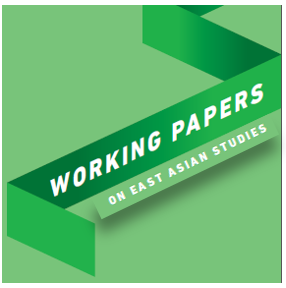Decoding the Chinese Puzzle : Rapid Economic Growth and Social Development Despite a High Level of Corruption
This paper examines why despite increasing corruption since the 1980s, China’s development has
advanced so rapidly. The author argues that a strong developmental state, the prevalence of “developmental
corruption” over “predatory corruption” and a temporary and relative acceptance of leading
local cadres’ corrupt practices by the Chinese leadership contributed to a high level of economic
development.
The development model of purely quantitative growth has meanwhile been replaced by one in favor of more sustainable development. However, social groups benefitting from corrupt practices or having invested heavily in social relationships are opposing such a step. Therefore, the central political leadership resorts to a combination of fighting at the same time both political corruption and political opposition of individuals and organizations against its new development policies and anti-corruption drive. Thus, combating corruption is also a mechanism to enforce the new reform and development program.
The development model of purely quantitative growth has meanwhile been replaced by one in favor of more sustainable development. However, social groups benefitting from corrupt practices or having invested heavily in social relationships are opposing such a step. Therefore, the central political leadership resorts to a combination of fighting at the same time both political corruption and political opposition of individuals and organizations against its new development policies and anti-corruption drive. Thus, combating corruption is also a mechanism to enforce the new reform and development program.

